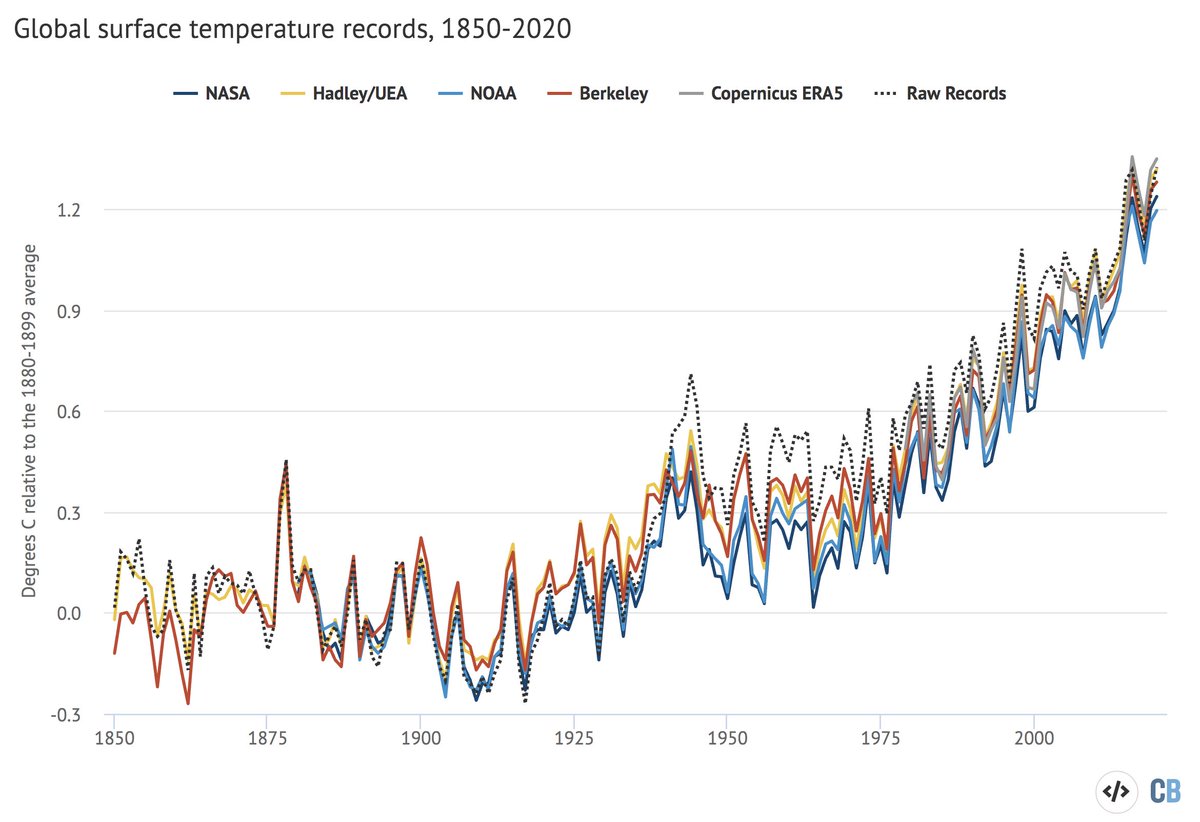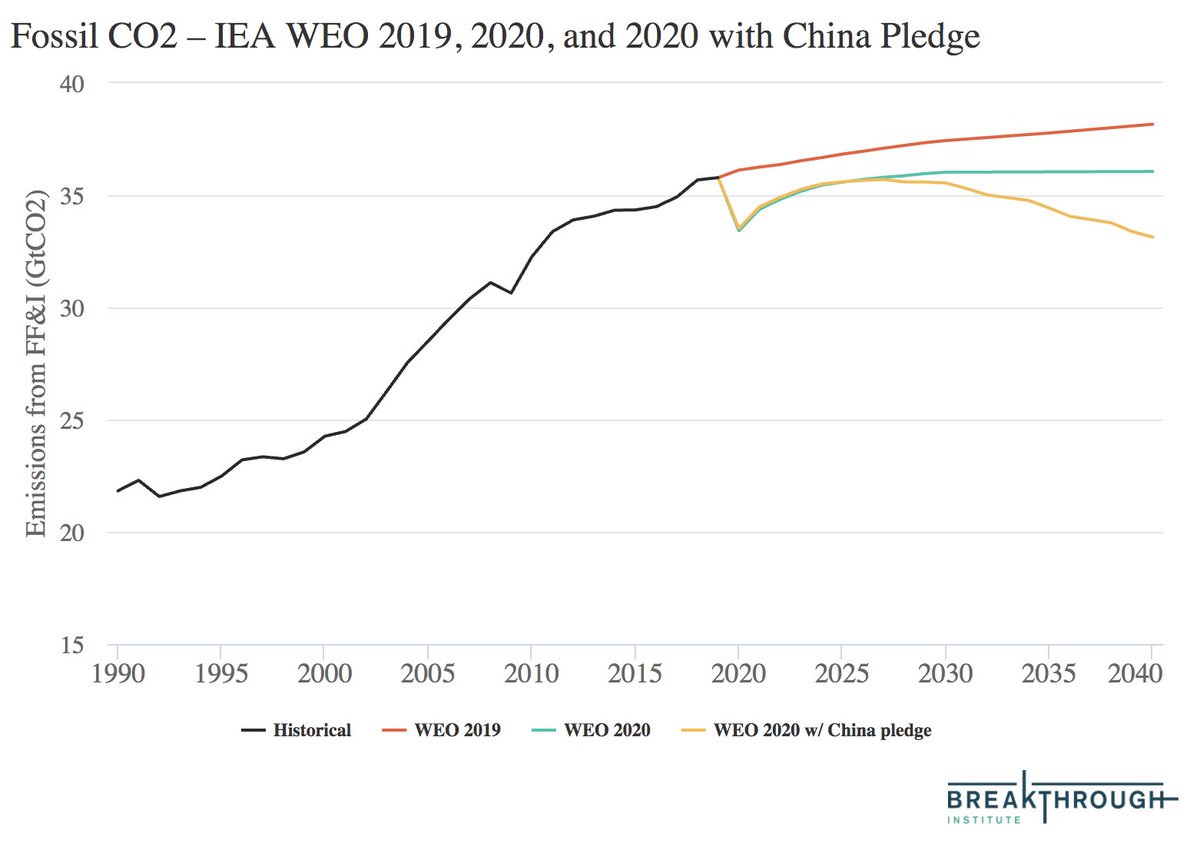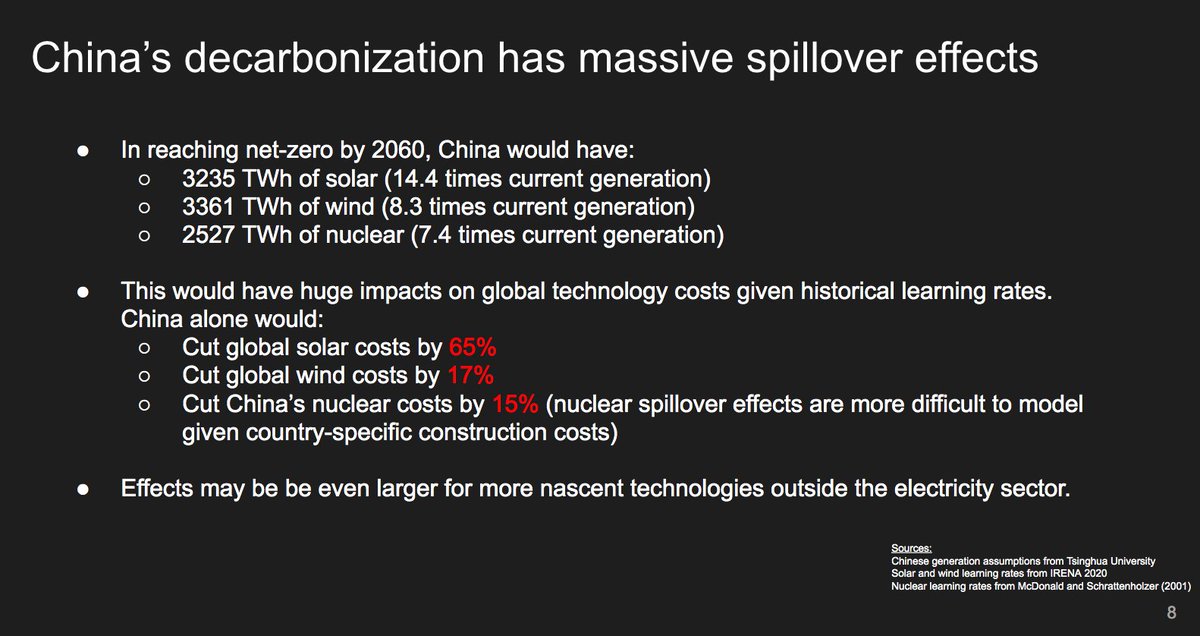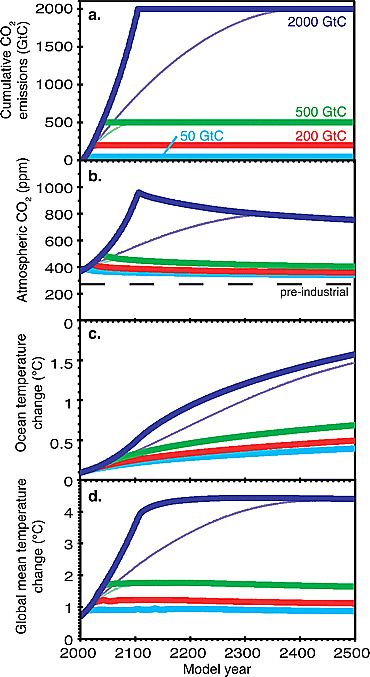
Remember the 15-year "hiatus" in global warming?
Turns out the last 15 years (2006-2020) were twice as far above the long term trend as the hiatus (1998-2012) was below it.
Lets not over-interpret short-term variability, but perhaps its time to start talking about acceleration
Turns out the last 15 years (2006-2020) were twice as far above the long term trend as the hiatus (1998-2012) was below it.
Lets not over-interpret short-term variability, but perhaps its time to start talking about acceleration

It is important to emphasize that some of the discussion of the "hiatus" was driven by observational data artifacts (lack of arctic coverage, biases due to the transition from ships to buoys for ocean measurements) that have now been corrected.
That said, there is growing evidence that the rate of warming has accelerated in recent years.
1970-2020: 0.19C per decade
1998-2012: 0.13C per decade
2006-2020: 0.31C per decade
The next few years will be quite important to watch.
1970-2020: 0.19C per decade
1998-2012: 0.13C per decade
2006-2020: 0.31C per decade
The next few years will be quite important to watch.
(Note that if we try the other commonly used hiatus period – 2000-2014 – the trend is slightly higher at 0.14C pre decade)
• • •
Missing some Tweet in this thread? You can try to
force a refresh






